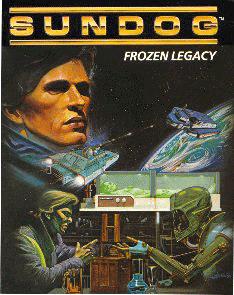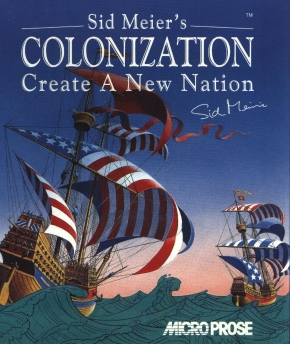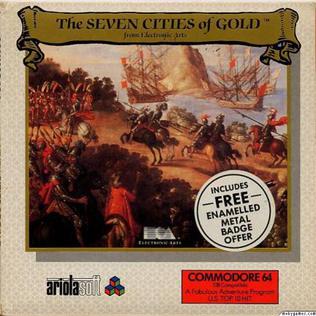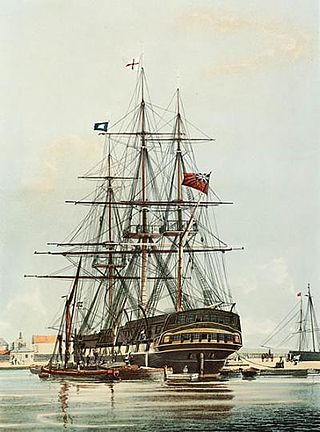A virtual economy is an emergent economy existing in a virtual world, usually exchanging virtual goods in the context of an online game, particularly in massively multiplayer online games (MMOs). People enter these virtual economies for recreation and entertainment rather than necessity, which means that virtual economies lack the aspects of a real economy that are not considered to be "fun". However, some people do interact with virtual economies for "real" economic benefit.

SunDog: Frozen Legacy is a 1984 space trading and combat simulator video game. SunDog was first developed for the Apple II, with version 1.0 being released in March 1984, and version 1.1 released three weeks later. Version 2.0, which included enhancements and improved performance, was released in October, 1984. An enhanced version was released for the Atari ST in December 1985.

Puerto Rico is a Euro-style board game designed by German designer Andreas Seyfarth and published in 2002 in a German-language edition by Alea. Players assume the roles of colonial governors on the island of Puerto Rico during the age of Caribbean ascendancy. Puerto Rico was the highest-rated game on the board game website BoardGameGeek for over five years, until it was surpassed by Agricola. The aim of the game is to amass victory points in two ways: by exporting goods and by constructing buildings.

Sid Meier's Colonization is a video game by Brian Reynolds and Sid Meier. It was developed by MicroProse's Chapel Hill development studio and was released in 1994. It is a turn-based strategy game themed on the early European colonization of the New World, starting in 1492 and lasting until 1850. It was originally released for DOS, and later ported to Windows 3.1 (1995), the Amiga (1995), and Macintosh (1995). American video game publisher Tommo purchased the rights to this game in 2015 and digitally published it through their Retroism brand.

The Seven Cities of Gold is a strategy video game created by Danielle Bunten Berry and Ozark Softscape and published by Electronic Arts in 1984. The player takes the role of a late 15th-century explorer for the Spanish Empire, setting sail to the New World in order to explore the map and interact with the natives in order to win gold and please the Spanish court. The name derives from the "seven cities" of Quivira and Cíbola that were said to be located somewhere in the Southwest United States. It is considered to be one of the earliest open world video games.

Spelljammer: Pirates of Realmspace is a video game for MS-DOS released by Strategic Simulations in 1992. It is a Dungeons & Dragons PC video game using the Advanced Dungeons & Dragons, Second Edition rules, and the Spelljammer setting. Spelljammer was programmed and designed by Cybertech Systems.

X3: Reunion is a single-player space trading and combat video game developed by Egosoft and published by Deep Silver. It is the third installment in the X series and the sequel to X2: The Threat (2003), which in turn followed X: Beyond the Frontier (1999). X3: Reunion was released originally for Windows in 2005. The game was later ported to Mac OS X and Linux.

East Indiaman was a general name for any sailing ship operating under charter or licence to any of the East India trading companies of the major European trading powers of the 17th through the 19th centuries. The term is used to refer to vessels belonging to the Austrian, Danish, Dutch, English, French, Portuguese or Swedish companies.

The Patrician is a 1992 historical trading simulation video game for Amiga, Atari ST and MS-DOS developed by Ascaron Entertainment and published by Triptychon Software. In the game, the player assumes the role of a merchant in any of several cities of the Hanseatic League, accumulating money, capital and consumer goods, and real estate, expanding his company, and furthering his career at home and abroad.

Pirates of the Burning Sea is a massively multiplayer online role-playing game (MMORPG) previously developed by Flying Lab Software and Portalus Games, and currently supported by Vision Online Games. The game is set in the Caribbean in an anachronistic 1720 and combines tactical ship battles and swashbuckling combat with a player-driven economy and open-ended gameplay. In the game, players can choose from four nations; Great Britain, Spain, France and the generically named 'Pirates'.

Twilight Imperium is a strategy board game produced by Fantasy Flight Games in the genre of science fiction and space opera. It was designed by Christian T. Petersen and was first released in 1997. The game is in its fourth edition (2017), which has large changes over previous editions. It is known for the length of its gameplay, and its in-depth strategy.

Port Royale 2 is the sequel to the business simulation game Port Royale: Gold, Power and Pirates. It is set in the Caribbean during the 17th century. Created by Ascaron Entertainment in 2004, it combines a business simulator with real-time battles and towns that can be owned, built, developed or razed. A sequel, Port Royale 3: Pirates & Merchants, was released in 2012.

Starship Catan is a two-player card game, loosely based on the Starfarers of Catan board game. As a member of the Catan family of games, it is designed by Klaus Teuber, and distributed by Kosmos in German and Mayfair Games in English.

Sid Meier's Pirates! is a 2004 strategy, action and adventure video game developed by Firaxis Games. A remake of Sid Meier's earlier 1987 game of the same name, it was originally published by Atari Interactive but in May 2005 2K acquired the rights to the title from Atari's parent company Infogrames and later went on to publish console and handheld ports of the game.

Voyage Century Online (航海世纪/王者世紀) is a free-to-play nautical MMORPG developed by Snail Games and published by IGG. It was the first game developed by Snail after its founding in 2000. The game is set in the 16th century and features accurate historical representations of several coastal cities. Players are not required to choose a career path at the beginning of the game. This gives players a rather varied gameplay in which they can either specialize in one skill and trade for resources, or make use of all the skills.

Taipan! is a 1979 turn-based strategy computer game written for the TRS-80 and ported to the Apple II in 1982. It was created by Art Canfil and the company Mega Micro Computers, and published by Avalanche Productions.

Anno 1404, known as Dawn of Discovery in North America, is a city-building and economic simulation game with real-time strategy elements, part of the Anno series. Released in 2009, it was developed by Related Designs, produced by Blue Byte, and published by Ubisoft. Anno 1404 is the sequel to Anno 1701 and is followed by the futuristic sequel Anno 2070. Though the game centers on a series of fictional events, the overall concept of the storyline is based upon real life aspects of medieval and renaissance history such as the Crusades, advancements in gothic architecture, construction of cathedrals, and hanseatic trade involving the rise of patrician merchants and early forms of capitalism.

Pardus is a graphical browser-based MMORPG written in PHP and C/C++ and set in a futuristic universe where players interact and compete in space. It is a persistent-universe, open-ended game with a player-driven economy. Players travel through hundreds of "sectors" or solar systems while trading, building or battling with Non-Player Characters (NPCs) and other players. There are dozens of spacecraft models in Pardus, which can be customized with different weapons, armor and other equipment. Pardus characters do not have a defined 'class'.
Glenn Drover's Empires: The Age of Discovery is the first of the Glenn Drover's Empires board games, created by Glenn Drover.

Space Bucks was a space trading simulation developed by Impressions Games and published by Sierra On-Line. The game focuses on the creation of a trade empire against several computer controlled opponents. Victory is achieved through a combination of infrastructure investments, the stock market, piracy, sabotage, and of course trade goods.

















